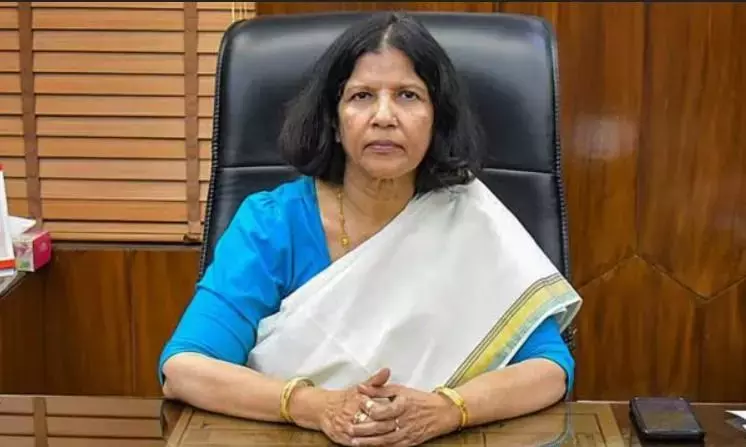
India targets 4-fold increase in share of global space economy by 2035
text_fieldsNew Delhi: India is set to expand its share in the global space economy from the current 2 per cent to nearly 8 per cent over the next decade, according to a new report released on Monday.
The report, published by KPMG in India in collaboration with the Confederation of Indian Industry (CII) at the ‘International Conference on Space 2025’, highlighted the transformational growth of India’s space sector. The sector is undergoing a paradigm shift, moving from an innovation-led frontier to mainstreaming space-based services across governance, development, and strategic domains.
“With the global space economy expected to grow from $596 billion in 2024 to $1.8 trillion by 2035, India’s space economy is projected to increase its share fourfold over the next decade,” the report stated.
It outlined how space-based assets and services, including Earth Observation (EO), Satellite Communication (SatCom), and Navigation (PNT) technologies, are becoming critical enablers of governance, economic growth, and national security. Integration of these services into national workflows is accelerating India’s transition toward a service-oriented space economy.
“India stands at a pivotal juncture in its space journey. The foundations built over decades are now enabling a leap towards scale, integration, and global leadership,” said Gaurav Mehndiratta, Partner and National Head - Aerospace, Defence and Space, KPMG in India. He added that achieving this potential would require coordinated action across policy, industry, and academia to foster innovation, build resilient infrastructure, and connect space capabilities with diverse user communities.
The report also emphasised the role of Digital Public Infrastructure (DPI) as a key enabler, facilitating seamless integration of space-based data with governance platforms, financial ecosystems, and a wide range of user applications. It underscored the importance of platform interoperability and SatCom-based redundancy to ensure service continuity, particularly in remote and disaster-prone regions.
Downstream services are increasingly central to governance, resilience, and strategic operations. EO and SatCom are supporting flagship initiatives such as PM Gati Shakti and Ayushman Bharat. Strategic segments, including defence, disaster response, and governance, are setting benchmarks for mission-grade applications, while international collaboration positions India as both a contributor and regional enabler.
“India’s downstream space ecosystem is evolving into a foundational pillar of national development. By embedding space-based services into core governance and strategic workflows, and aligning policy with mission needs, India is poised to expand its global share and shape the future contours of the international space economy,” the report concluded.
With IANS inputs

























